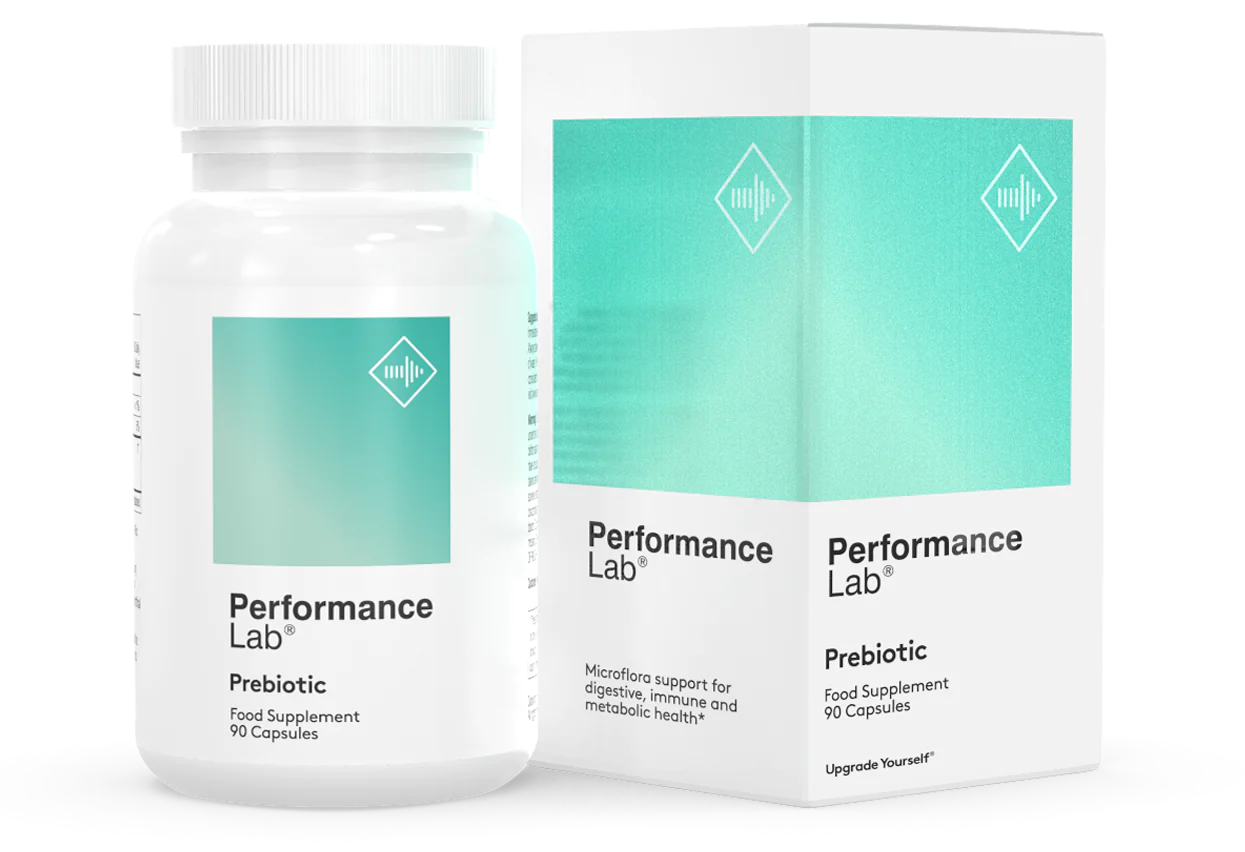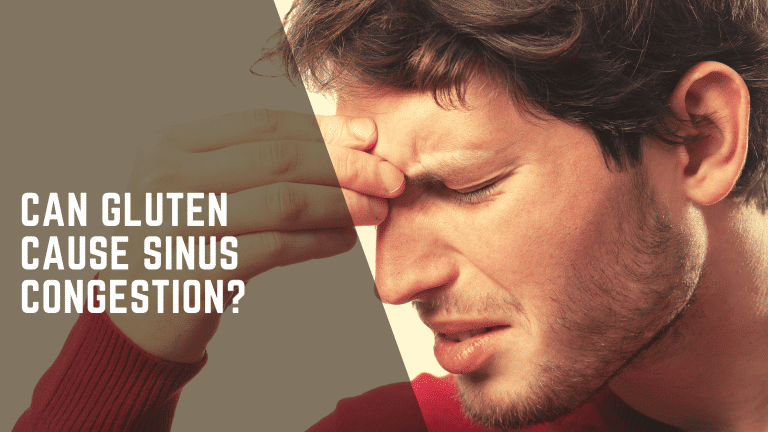Feeling Gassy While Following a Gluten Free Diet? – Here’s How To Beat The Bloat!

Cutting out gluten was supposed to make you feel better, right? So why does your stomach feel like it’s about to take flight?
Don’t worry; you’re not the only one with this post-gluten gut rebellion. I’ve been there, done that, and worn the T-shirt, as the saying goes!
I’ve struggled with feeling gassy while following a gluten free diet and learned to beat the bloat. Read on to learn how you can, too!
Key Takeaways
- The Fiber Factor: Your body needs time to adjust to all that healthy fiber from gluten-free grains, beans, and lentils. Gas is just a sign it’s working!
- Watch Out for Fillers: Gluten-free products sometimes sneak in hard-to-digest ingredients for IBS sufferers (think inulin, sorbitol, xylitol). Check those labels carefully.
- Processed Isn’t the Best: Too many gluten-free snacks can be packed with sugar and additives – not great for your gut. Stick to whole foods whenever possible.
- Know the Signs: Feeling extra gassy, bloated, or having tummy troubles? Those are telltale signals your digestion is adapting to going gluten-free.
- Smart Solutions: Focus on whole foods, increase fiber slowly, and pair your foods wisely (like fruits with nuts, greens with protein) to ease digestion.
- It’s Not Just About Food: Eating slowly, exercising regularly, and finding ways to chill out (like meditation) can make a huge difference in curbing the gas.
Gassiness on a Gluten-Free Diet: The Lowdown
Switching over to a gluten-free lifestyle has its upsides, especially for people like me who have celiac disease.
But here’s the thing, it’s not all smooth sailing.
Adjusting to this new way of eating often brings about a rather uncomfortable companion: gassiness.
Let’s break down why this happens and how to spot the signs.
Causes of Gas on a Gluten-Free Diet
First up, why does going gluten-free sometimes turn you into a bit of a human balloon?
It’s not just you—it’s a pretty common hiccup people face and I’m definitely no stranger to it!
Here’s the main culprits:
- Increased Fiber Intake: Many gluten-free products are made from high-fiber ingredients like beans, lentils, and various whole grains. Fiber is fantastic for your digestive health, but it can also lead to more gas, especially if your body isn’t used to it.
- Substitutes and Fillers: Gluten-free foods often contain alternative ingredients and fillers to mimic the texture that gluten provides. Ingredients like inulin, sorbitol, or xylitol can be tough on your stomach, leading to gas and bloating.
- Processed Gluten-Free Foods: It’s tempting to replace familiar gluten-containing foods with their gluten-free counterparts, but these processed options might be high in sugar and certain additives, triggering digestive discomfort.
Common Symptoms of Gassiness
So, how do you know if what you’re experiencing is just part of the gluten-free transition?
Look out for these tell-tale signs:
• Frequent Belching or Burping: This can be one of the first signs that your digestive system is adjusting to the new diet.
• Bloating: Feeling like you’ve suddenly got a food baby? Bloating is a clear indicator of gas build-up in your digestive tract.
• Discomfort and Pain: If the gas isn’t escaping, it can lead to cramping, sharp pains, or a constant dull ache in your abdomen.
Keeping a food diary was a game-changer for me.
Don’t get me wrong, it can be a pain at first and can seem like such a chore. But don’t worry, consistency is key here.
Since I note which foods tend to trigger more gas daily, I can easily tweak my diet to either cut down on or eliminate certain foods.
And you can, too!
Remember, it’s all about finding what works best for your body. Patience and experimentation is the aim of the game.
Managing Gassiness on a Gluten-Free Diet
If you’ve been feeling gassy while following a gluten free diet, I feel your pain.
It used to be something I experienced daily, until I made several changes which have thankfully made the severity and frequency of this symptom far less.
Here’s how you can achieve the same:
Dietary Adjustments
First off, it’s crucial to look at what you’re eating. While ditching gluten is the goal, it’s essential to focus on the quality of the gluten-free alternatives you’re choosing.
Whole foods are your best friends here. Think fruits, veggies, lean meats, and whole grains like quinoa and rice. These foods are naturally gluten-free and less likely to cause digestive issues.
Reducing or even eliminating high-fiber substitutes can also make a huge difference.
I know, I know, fiber is a cornerstone of a healthy diet.
But when you’re getting used to a gluten-free lifestyle, your body might need a bit of time to adjust to increased fiber levels.
Gradually increase your fiber intake instead of going all-in from the start. This helps your digestive system adapt without causing too much discomfort.
Supercharge your performance and optimize gut health with Performance Lab Prebiotic. Unleash your true potential and experience the winning edge you’ve been searching for.
Food Combinations to Reduce Gas
Let’s talk about combining foods to keep that bloated feeling at bay. Pairing foods wisely can really help minimize gassiness.
Here’s a couple of smart combos:
• Fruit and Nuts: Combining a handful of nuts with a piece of fruit can help balance your intake of fiber with healthy fats and protein, slowing down the digestion process just enough to decrease gassiness.
• Leafy Greens and Lean Protein: Think grilled chicken with a side of spinach. This combo helps your stomach process the fiber from the greens more efficiently, thanks to the protein’s digestive enzymes.
It’s also smart to stay hydrated, but try to sip water throughout the day instead of gulping down a lot during meals.
Lifestyle Changes
Besides diet, a few lifestyle tweaks can make a significant difference. First, take a good look at how fast you’re eating.
Slowing down and chewing your food thoroughly can decrease the amount of air you’re swallowing, which—you guessed it—reduces gassiness.
Regular exercise is another game changer. Even a brisk walk can stimulate your digestive system, helping to expel gas and ease bloating.
Last but not least, consider stress management techniques like meditation, deep breathing exercises, or gut-directed hypnotherapy with a service like Nerva IBS.
Stress can mess with your digestion, leading to increased gassiness. Finding calm in your day can help keep your digestive system running smoothly.
Remember, it’s all about finding what works for you. Our bodies respond differently to dietary and lifestyle changes, so it might take some experimentation to discover what diminishes your discomfort the most.
Gassy While Following A Gluten Free Diet – Final Thoughts
It’s a bummer that ditching gluten brings some, uh, noisy side effects. But the good news is, it’s temporary if you follow the right approach!
Stick to the basics – whole foods, smaller portions at first, and a bit of patience.
Your digestion will adjust, and you’ll be feeling like your old self again. You got this!
Disclaimer: This content is based on my personal experience as an individual diagnosed with celiac disease and IBS (Irritable Bowel Syndrome) who follows a strict gluten-free diet. This does not constitute medical advice. Please consult a medical professional, nutritionist, or qualified dietitian for personalized, professional advice.





